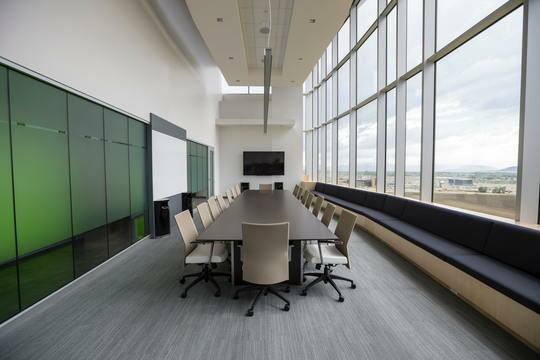OFRA is the non-profit representative body advancing office furniture remanufacturing in the UK
Remanufacturing returns items to as-new condition in a quality-controlled engineering process. It creates substantial cost and environmental benefits compared to making products from virgin or recycled materials.
Remanufacturing is an essential to reducing carbon emissions related to buildings because furniture contributes 30% of a commercial building’s lifecycle emissions [1].
Objectives
OFRA’s objectives are to:
-
- Promote remanufactured office furniture by educating clients and their advisors and suppliers on its benefits.
- Provide neutral advice on how to buy and specify remanufactured office furniture.
- Assist with government policy development to support the growth of the remanufactured office furniture industry.
- Assist with the development of the British Standard for office furniture remanufacturing.
- Uphold standards of practice to ensure that the high quality of furniture remanufacturing is maintained.
- Provide a free-to-use mark for projects to show their second life furniture use, thereby demonstrating their commitment to sustainability.
Benefits of remanufactured furniture
High quality: Remanufacturing returns furniture to as-new condition, with a warranty. It is a drop-in replacment for furniture made from virgin resources.
Cost savings: Remanufactured furniture is structurally lower cost than new furniture because its components have not travelled around the world through multiple process stages, each adding a margin.
Carbon emission savings: Manufacturing experts cite an 80% reduction in greenhouse gas emissions of remanufactured products[2].
Waste reduction: Because remanufacturing redeploys most elements of an item, waste is substantially reduced.
Green accreditation: Remanufactured furniture is recognised with BREEAM, LEED and SKA credits and is WELL compliant.
Social benefits: Remanufacturing is done locally, creating local jobs.
Remanufacturing is better than “recycled content” and “recyclable”
While increasing the recycled content of furniture is better than using virgin raw materials, recycling is an energy-intensive process that does not achieve a 90% reduction in embodied carbon emissions, which is required to limit global warming to 1.5 degrees Celcius[3].
And “recyclable” pushes the responsibility for recycling onto the buyer, who rarely can access the infrastructure for recycling the materials that go into furniture.
Remanufacturing, by comparison, is lower cost and lower carbon emissions, because it retains most materials in their current form, while returning the item to as-new condition.
How to specify and buy remanufactured office furntiure
OFRA recommends that buyers involve remanufactured furniture suppliers as early as possible in the interior design process, certainly before finalising the detailed furniture schedule.
This enables remanufacturers to work collaboratively to suggest high quality furniture that fits with the look, feel and budget; often resulting in higher spec furniture than the designer imagined was affordable.
Where furniture packages are tendered, keeping the furniture schedule generic and allowing similar items enables remanufacturers to suggest a range of suitable high quality furniture items.
OFRA encourages the adoption of best practice evaluation criteria for sustainable office furniture, which are presented here in the Knowledge Hub.

Contact
We welcome enquiries from the media, policy-makers and those who share our interest in improving the sustainability and cost-effectiveness of the office furniture sector. Our General Secretary can be contacted at contact@ofrauk.org.
References
[1] Treloar, GJ. Et al, 1999, Embodied energy analysis of fixtures, fittings and furniture in office buildings, Facilities, Volume 17, Number 11, pp. 403-409 (Accessed on 14 June 2019 at https://www.academia.edu/18481731/Embodied_energy_analysis_of_fixtures_fittings_and_furniture_in_office_buildings)
[2] McKenna, R. President and CEO, Motor & Equipment Manufacturers Association, Testimony before the International Trade Commission on: Remanufactured Goods: An Overview of the U.S. and Global Industries, Markets, and Trade, Investigation No. 332-525, Feb 2012.
[3] Science Based Targets initiative standard (Accessed on 25 June 2023 at https://sciencebasedtargets.org/net-zero)
